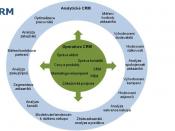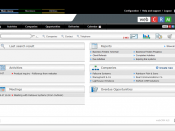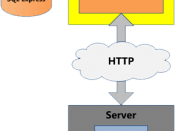11. Introduction �
22. Five Components of Knowledge Management �
22.1 Creation �
52.2 Collection �
72.3 Storage �
82.4 Dissemination �
92.5 Application �
93 Enablers of Knowledge Management �
93.1 Organizational Structure �
113.2 People �
113.3 Technology �
123.2 Processes �
124 Knowledge Culture as Key enabler for Knowledge Management �
145 Drivers �
166 Conclusion �
167 References �
198 Annexures �
�
Write a critical essay on the topic: How do the five main components of knowledge management (creation, collection, storage, dissemination and application) manifest themselves in an organisation of your choice? Include a discussion of the drivers and enablers of knowledge management within the organisation you have chosen to discuss.
Introduction
As markets shift, uncertainity dominates, technologies proliferate, competitiors multiply, and products and services become obsolete rapidly, successful companies are characterized by their ability to create new knowledge consistently. (Tiwana A, 2002). Telkom, Africa's largest integrated communications company has passion to become world class.
With pinnacle of change from fixed to mobile, we explore how Knowledge management processes in Telkom play a hugh part in Telkom's strategy.
Five Components of Knowledge Management
Creation
Organizational knowledge creation involves developing new content or replacing existing content within the organization's tacit and explicit knowledge (Pentland 1995). Tacit knowledge is highly personal, context-specific, subjective, and difficult to verbalize or communicate (Nonaka 1995). Tacit knowledge: absence of data. It is not easily interpreted. (Barclay Rebecca 2004). Explicit knowledge is formal and systematic (Krogh 2000).
To help encourage the behavior of knowledge creation, the organization should provide an environment that allows creativity to flourish through informal spontaneous interactions. (Palanisamy R 2007)
Teams are one of the most efficient resources to generate knowledge in addition to IS and manuals (Anand,Vikas & Clark 2003). Thus, exchanging tacit knowledge helps to be...


